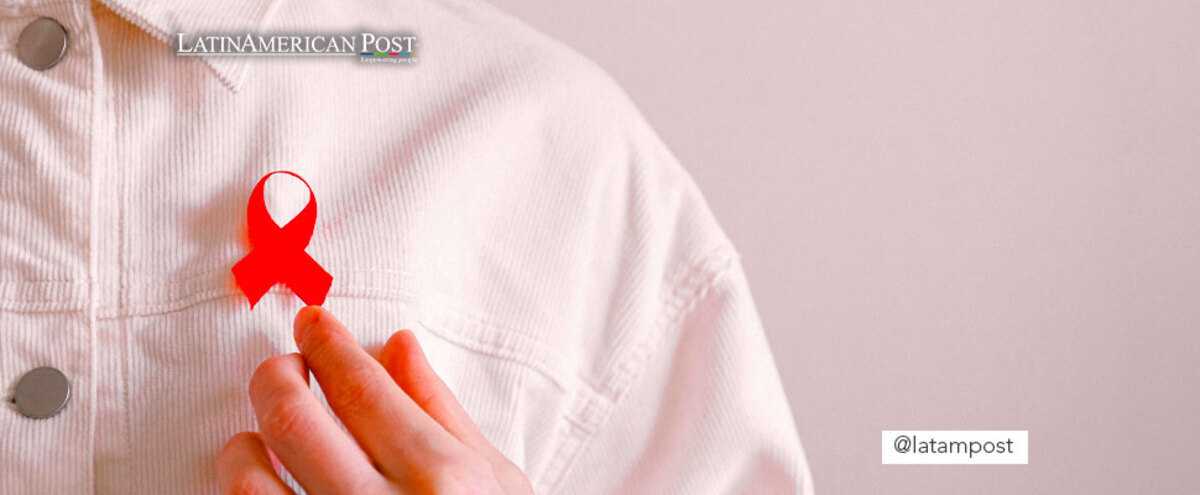Living with AIDS: Beyond the Myths
Despite advances in AIDS treatment and knowledge of the HIV virus, there are still many prejudices and stigmas towards HIV-positive people. A full life is possible and for this it is urgent to curb ignorance and myths.

Photo: Pexels
LatinAmerican Post | María Fernanda Ramírez Ramos
Listen to this article
Leer en español: Vivir con SIDA: más allá de los mitos
Fear of what they will say and of stigmatization. Fear of living with HIV and hopelessness are common factors reported by people who give their testimonies about living with AIDS. And it is a normal reaction, since there are still many myths and false beliefs about the Acquired Immune Deficiency Syndrome AIDS. This syndrome is caused by the HIV virus (human immunodeficiency virus). It attacks the defenses and weakens the immune system, which increases the risk of contracting infections, cancer and other diseases. The most advanced phase of this virus is AIDS, but this can take from 2 to 15 years to manifest itself after infection with the virus, according to information from the WHO.
HIV/AIDS in Latin America
According to information from UN AIDS, in recent years there has been a "slowdown in the rate at which new HIV infections are being reduced, access to treatment is increasing, and AIDS-related deaths are ending". The latest data from this organization indicates that in 2021: 1.5 million people contracted HIV, 38.4 million were living with HIV, and 650.000 people died from AIDS-related diseases.
"23% of people with HIV in Latin America and the Caribbean are unaware of their infection, and approximately a third are diagnosed late, with advanced immunodeficiency", indicate PAHO data. HIV-related stereotypes and stigmas influence this situation of late diagnoses. This virus is perceived as something distant or "that only happens to gay people". However, these are statements that are far from reality and early screening is essential: it can save lives.
One of the main strategic lines of UN AIDS and activist organizations is to eliminate discriminatory legislation, such as the one that prohibits relationships between people of the same sex, criminalizes sex work or deports foreigners with a positive serological status, as well such as tough regulations against drug possession. One of the most recent struggles in this regard has been given by the Eastern Caribbean Alliance for Diversity and Equality (ECADE), which managed to repeal laws criminalizing same-sex sexual relations in Barbados by the end of 2022. .
On the other hand, Zero Discrimination Day is celebrated worldwide on March 1st to raise awareness of discriminatory laws that affect, among other things, early detection of HIV and the fight against AIDS.
We recommend you read: The fight against HIV AIDS has progress, but also setbacks and dangers
How Do you Get AIDS?
HIV can be contracted through contact with certain bodily fluids, especially through sexual intercourse. It is found in blood, breast milk, semen, vaginal fluids, and blood. It can also be passed from a pregnant mother to the baby. However, this does not mean that people with HIV cannot be mothers or fathers, or that the baby will necessarily be born with the virus. If a person with HIV carries out adequate treatment and follows certain special care, the pregnancy will develop completely normally.
On the other hand, contagion can be prevented with measures such as the use of condoms in sexual relations, avoiding sharing needles in the case of drug users and with the security measures of health personnel, so as not to prick themselves with an instrument with blood of a person carrying the virus. It is necessary to clarify that it is not possible to contract it in daily activities with people who are HIV carriers. That is, there is no risk when eating, sharing spaces, kissing or hugging.
In fact, if a person undergoes medical treatment, they can have the virus, but not transmit it, even during sexual intercourse. For this, there are different medications that keep the viral load very low and allow people to have a life of well-being. Scientific efforts are also focused on developing a definitive cure or a vaccine. However, this has not yet been achieved, despite multiple tests.
Myths that Discriminate Against People with HIV or AIDS
For decades, people with HIV positive have suffered a series of institutional and cultural violence that have resulted in violations of their rights. Stigmatization has permeated work, educational and health environments. However, fortunately, there is increasing awareness of this and there are organizations and activists that are in charge of denouncing situations of abuse. To remedy this type of situation, it is necessary to establish guarantees that allow people to exercise their rights and live fully. A first step is the need to have clear, truthful and useful information on AIDS, as well as the rights of those who carry it.
A fundamental aspect is that health personnel receive training in this regard and that hospitals fight against discrimination. It is necessary that people can talk about the virus naturally and that people are encouraged to get tested. Breaking the taboo is a way to encourage prevention and not discriminate against those with HIV.
The Radio Ambulante podcast told the story of a woman in Chile who found out she had HIV when she became pregnant. Since then, she suffered a series of continuous violence during her pregnancy. As a consequence, she ended up being sterilized without her consent. Furthermore, she never received correct information about the syndrome and this resulted in a deep fear, even of touching her baby. However, through a support network for people with HIV, she ended up denouncing the institutions that caused her such harm, like many women who suffered the same situation. Chile had to acknowledge its responsibility. The case was documented by UN AIDS, which noted that Chile "has committed to ending forced sterilization and guaranteeing reproductive rights as human rights without discrimination."




